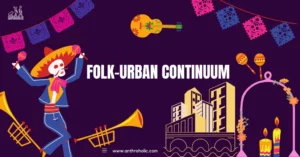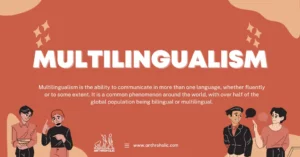+91-7303290503, +91-9557169661 | MON to SUN 10:00 AM - 6:00 PM
Edmund Leach
Edmund Leach was anthropology’s provocateur-a scholar who thrived on contradiction and pushed the discipline beyond its traditional boundaries.
Trained as an engineer and shaped by wartime service in colonial Burma, Leach entered anthropology not through academic convention but through real-world entanglements with power, politics, and cultural complexity. Over the course of his career, he would become one of Britain’s most influential and controversial anthropologists, blending British empiricism with French structuralism, and challenging core assumptions about kinship, social order, and belief.

His groundbreaking book, Political Systems of Highland Burma (1954), redefined how anthropologists think about politics-not as stable systems, but as dynamic oscillations between opposing principles. Later, he championed the structuralist theories of Claude Lévi-Strauss, applying them to myths, rituals, and even biblical narratives with dazzling originality.
Edmund Leach didn’t just theorize culture-he questioned the authority of anthropology itself. This biography explores how a Cambridge engineer became a leading thinker in British social science, and how his restless intellect reshaped modern anthropology.
Early Life and Education
Edmund Ronald Leach was born on November 7, 1910, in Sidmouth, Devon, England, into a middle-class family. He was educated at Marlborough College and later attended Clare College, Cambridge, where he studied engineering. His early academic path gave him a methodological rigor and an interest in systems-traits that would later shape his anthropological thinking.
After university, Leach did not immediately pursue academia. In the 1930s, he worked as a businessman and engineer in China and Iraq, experiences that exposed him to colonial structures and cross-cultural dynamics. He eventually took a job with a British trading firm in Burma (now Myanmar)-a decision that would spark his lifelong engagement with Southeast Asian societies.
Wartime Experience and Shift to Anthropology
World War II was a turning point for Leach. Serving in the British Army in Burma, he gained firsthand insight into colonial administration, the diversity of ethnic groups, and the fragility of imposed political systems. His work brought him into contact with local peoples such as the Kachin and Chin (Zomi), and these encounters ignited a deep interest in their social and political organization.
Following the war, Leach returned to England and enrolled in a PhD program in anthropology at the London School of Economics, studying under the influential anthropologist Raymond Firth. This marked the start of his formal anthropological training, although his intellectual independence and critical spirit were evident from the beginning.
Fieldwork and Early Ethnographic Work
In the late 1940s, Leach returned to Burma to conduct fieldwork among the Kachin people-a complex, upland ethnic group with flexible political systems. The result of this research was his landmark book, Political Systems of Highland Burma (1954), which remains one of the most original contributions to political anthropology.
In this work, Leach challenged the prevailing structural-functionalism of British anthropology, which emphasized order, stability, and equilibrium. Instead, he argued that Kachin society was marked by constant movement between egalitarian and hierarchical systems, depending on external pressures and internal tensions. Rather than fixed institutions, politics appeared as an oscillating process-a radical departure from the static models of the time.
This approach earned him both admiration and controversy. Leach used ethnography to destabilize theory, demonstrating that social systems were often inconsistent, negotiated, and historically contingent. He rejected neat categories and argued that anthropologists should embrace ambiguity, contradiction, and flux.
This early phase of his career established Leach as a bold and original thinker-someone willing to critique the very foundations of his discipline.
Structuralism and Theoretical Innovation
In the 1960s, Edmund Leach became one of the first major British anthropologists to seriously engage with the structuralism of Claude Lévi-Strauss. While British anthropology had long focused on kinship, descent, and political structure from a functionalist perspective, Leach brought a new lens: the idea that underlying binary oppositions-such as life/death, nature/culture, or elder/younger-shape how people think and organize society.
In his influential essay collection Rethinking Anthropology (1961), Leach applied structuralist methods to a wide range of topics-from myth and ritual to kinship and social hierarchy. His analysis of myths, such as Genesis narratives and Burmese cosmologies, used Lévi-Straussian logic but added empirical depth and comparative flair.
Leach’s work was not a slavish adoption of French theory. He challenged Lévi-Strauss’s more rigid formulations, arguing that symbolic structures were not timeless but contingent and contested. He saw symbols as dynamic, open to reinterpretation depending on political and social context.
One of his most famous theoretical moves was to undermine the rigid distinctions between types of kinship. In his critique of British descent theory, he argued that kinship is not just a matter of genealogical fact but of cultural construction and symbolic meaning. This insight helped pave the way for the later emergence of anthropological critiques of kinship by scholars like David Schneider and Marilyn Strathern.
Academic Leadership and Influence
Leach’s impact extended well beyond theory. He held several key academic positions, including Provost of King’s College, Cambridge (1966–1979), where he became a powerful institutional voice for reform and modernization in both university and anthropological practice.
He was known as a provocateur and public intellectual, often giving media interviews, lectures, and essays that questioned not only anthropological theories but also social and political norms. He took bold stances on issues like race, sexuality, and religion, using anthropological insight to challenge Western assumptions and moral dogmas.
Leach served as President of the Royal Anthropological Institute and played a central role in reshaping British anthropology during the post-war period. His students and protégés included many who went on to lead the discipline themselves.
He was a charismatic and polarizing figure-irreverent, skeptical, and always intellectually restless. For Leach, anthropology wasn’t about confirming theories, but about using them to question taken-for-granted truths.
Later Years and Legacy
In his later years, Leach continued writing, speaking, and shaping anthropological debate. He became increasingly interested in the relationship between anthropology and public life, arguing for a more engaged and reflective discipline. Though he eventually retired from active teaching, he remained intellectually active well into the 1980s.
Edmund Leach died in 1989, leaving behind a legacy that defied easy categorization. He helped British anthropology evolve from its colonial roots into a more critical, comparative, and theoretically diverse field.
His enduring contributions include:
- Demonstrating that political systems are not static, but oscillate over time.
- Helping to integrate structuralism into English-speaking anthropology.
- Challenging rigid models of kinship and descent.
- Advocating for open-ended, reflexive scholarship in the social sciences.
Whether admired for his theoretical insights or provoked by his critiques, Leach remains a central figure in the history of anthropology-one whose restless mind helped the discipline rethink not just others’ cultures, but its own.
Structuralism and Theoretical Innovation
In the 1960s, Edmund Leach became one of the first major British anthropologists to seriously engage with the structuralism of Claude Lévi-Strauss. While British anthropology had long focused on kinship, descent, and political structure from a functionalist perspective, Leach brought a new lens: the idea that underlying binary oppositions-such as life/death, nature/culture, or elder/younger-shape how people think and organize society.
In his influential essay collection Rethinking Anthropology (1961), Leach applied structuralist methods to a wide range of topics-from myth and ritual to kinship and social hierarchy. His analysis of myths, such as Genesis narratives and Burmese cosmologies, used Lévi-Straussian logic but added empirical depth and comparative flair.
Leach’s work was not a slavish adoption of French theory. He challenged Lévi-Strauss’s more rigid formulations, arguing that symbolic structures were not timeless but contingent and contested. He saw symbols as dynamic, open to reinterpretation depending on political and social context.
One of his most famous theoretical moves was to undermine the rigid distinctions between types of kinship. In his critique of British descent theory, he argued that kinship is not just a matter of genealogical fact but of cultural construction and symbolic meaning. This insight helped pave the way for the later emergence of anthropological critiques of kinship by scholars like David Schneider and Marilyn Strathern.
Academic Leadership and Influence
Leach’s impact extended well beyond theory. He held several key academic positions, including Provost of King’s College, Cambridge (1966–1979), where he became a powerful institutional voice for reform and modernization in both university and anthropological practice.
He was known as a provocateur and public intellectual, often giving media interviews, lectures, and essays that questioned not only anthropological theories but also social and political norms. He took bold stances on issues like race, sexuality, and religion, using anthropological insight to challenge Western assumptions and moral dogmas.
Leach served as President of the Royal Anthropological Institute and played a central role in reshaping British anthropology during the post-war period. His students and protégés included many who went on to lead the discipline themselves.
He was a charismatic and polarizing figure-irreverent, skeptical, and always intellectually restless. For Leach, anthropology wasn’t about confirming theories, but about using them to question taken-for-granted truths.
Later Years and Legacy
In his later years, Leach continued writing, speaking, and shaping anthropological debate. He became increasingly interested in the relationship between anthropology and public life, arguing for a more engaged and reflective discipline. Though he eventually retired from active teaching, he remained intellectually active well into the 1980s.
Edmund Leach died in 1989, leaving behind a legacy that defied easy categorization. He helped British anthropology evolve from its colonial roots into a more critical, comparative, and theoretically diverse field.
His enduring contributions include:
- Demonstrating that political systems are not static, but oscillate over time.
- Helping to integrate structuralism into English-speaking anthropology.
- Challenging rigid models of kinship and descent.
- Advocating for open-ended, reflexive scholarship in the social sciences.
Whether admired for his theoretical insights or provoked by his critiques, Leach remains a central figure in the history of anthropology-one whose restless mind helped the discipline rethink not just others’ cultures, but its own.
Conclusion
Edmund Leach was a rare kind of anthropologist-equally at home in the field, the classroom, and the public arena, yet never content to stay within the boundaries of convention. He brought restless energy and intellectual courage to every stage of his career, challenging the dominant paradigms of his time while reshaping how anthropologists approach politics, kinship, and culture.
Through Political Systems of Highland Burma, he offered a new vision of society-not as a fixed structure, but as a dynamic system of tension and transformation. His embrace and critique of structuralism helped make symbolic analysis central to British anthropology. And his sharp critiques of kinship theory, descent models, and academic orthodoxy made him a pivotal figure in anthropology’s mid-century transformation.
Leach’s legacy lies not only in his theoretical contributions but also in his commitment to critical inquiry. He believed anthropology should be bold-willing to confront its own assumptions and the power structures that shape knowledge. His work paved the way for generations of anthropologists to ask deeper, more reflexive questions about meaning, symbolism, and social life.
References
- “Edmund Leach.” Encyclopedia.com. https://www.encyclopedia.com/environment/encyclopedias-almanacs-transcripts-and-maps/leach-edmund
- “Edmund Leach.” Royal Anthropological Institute. https://therai.org.uk/archives-and-manuscripts/obituaries/edmund-leach/
- Royal Anthropological Institute




